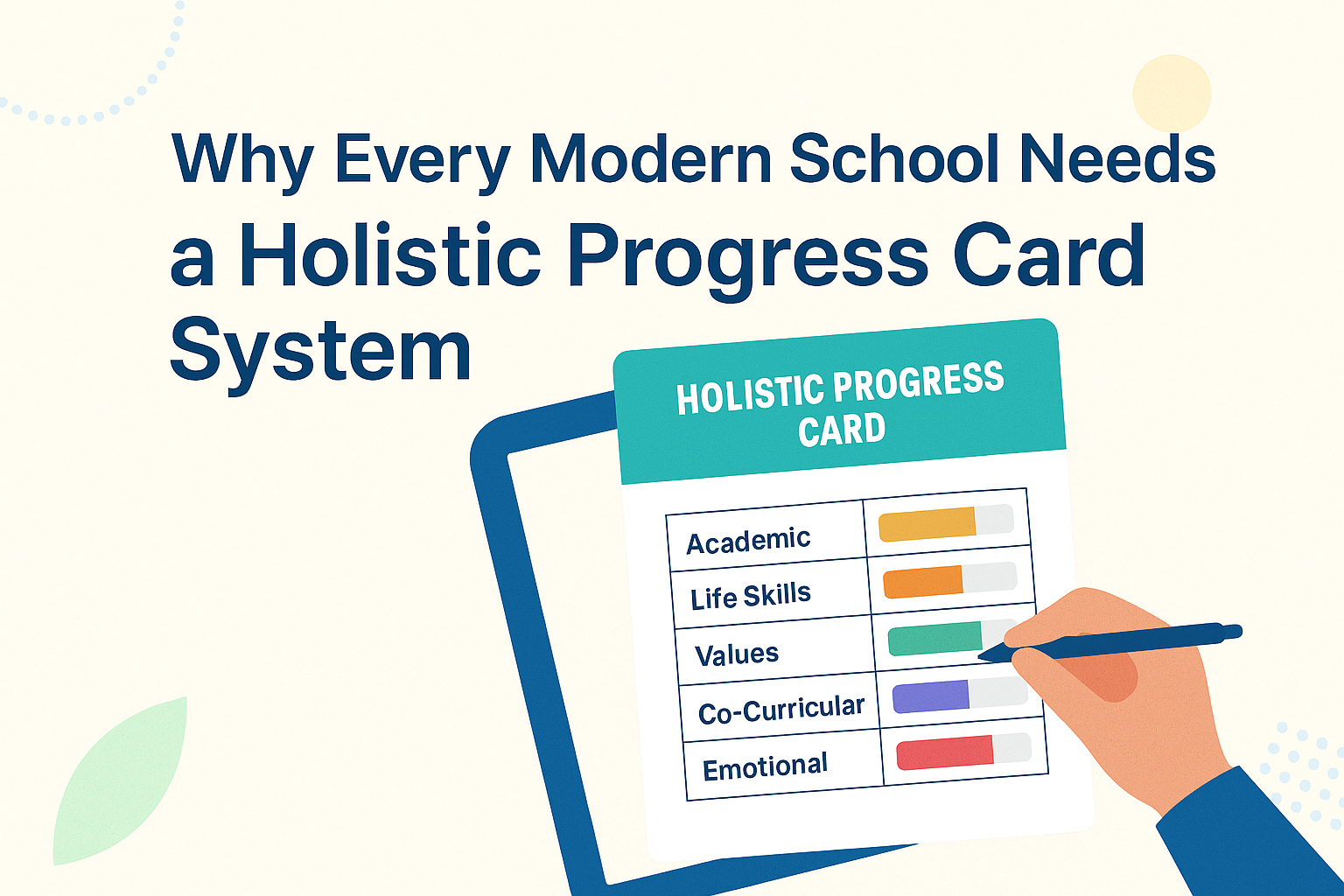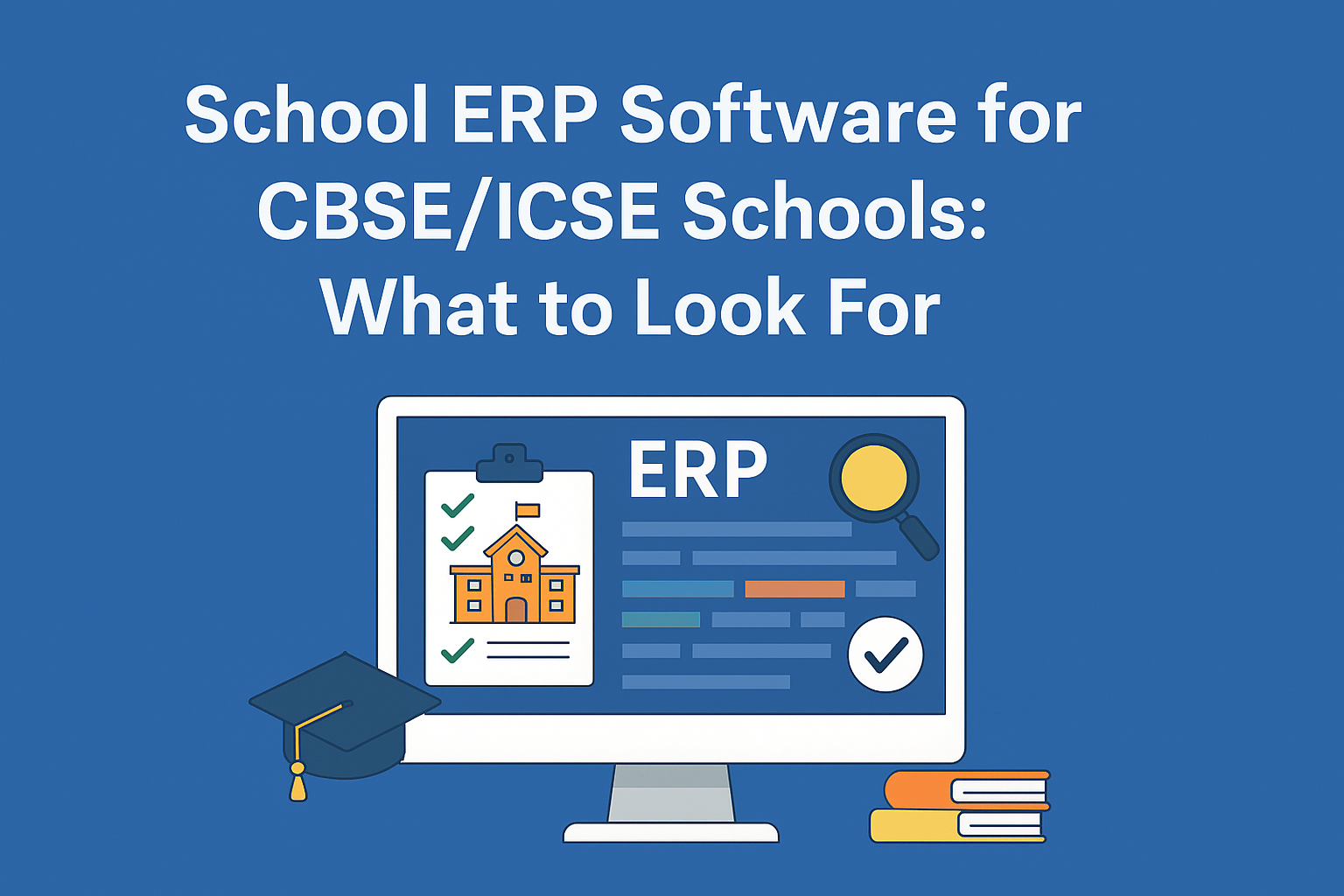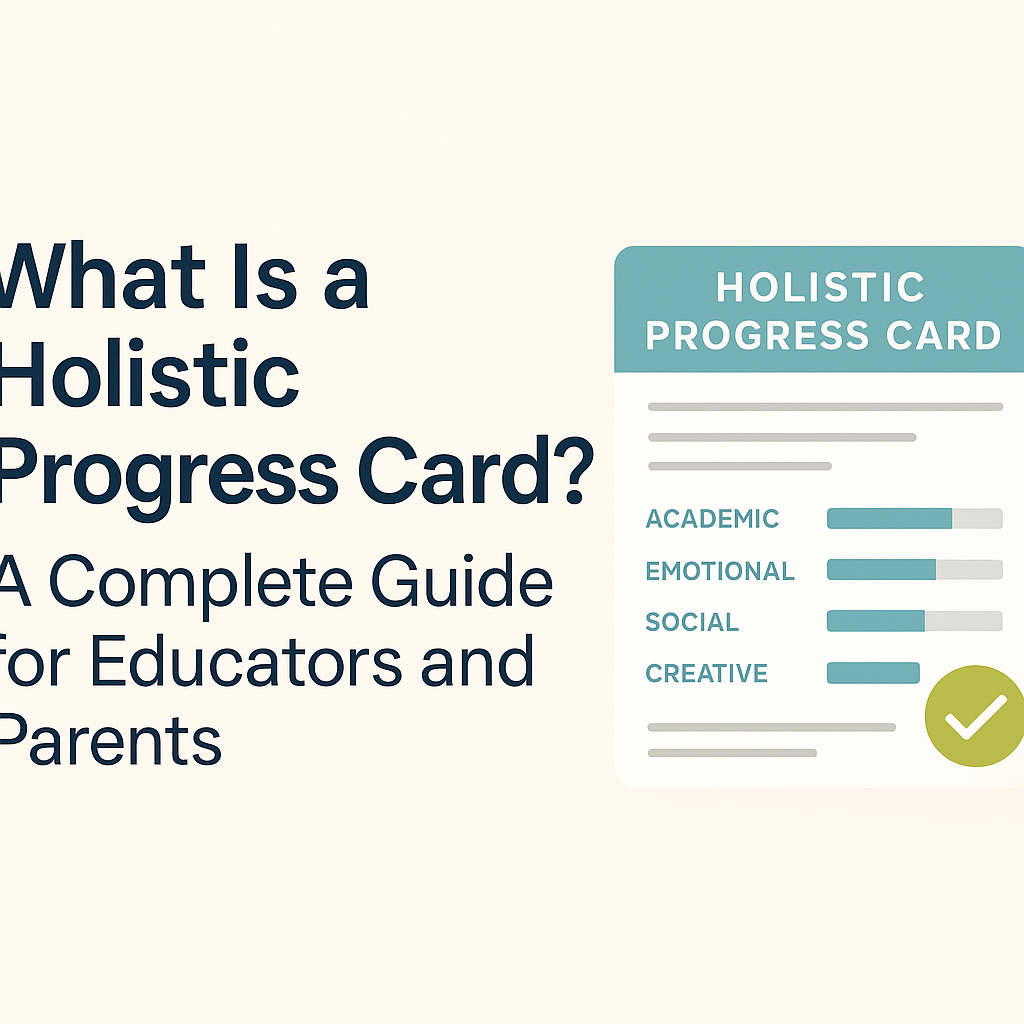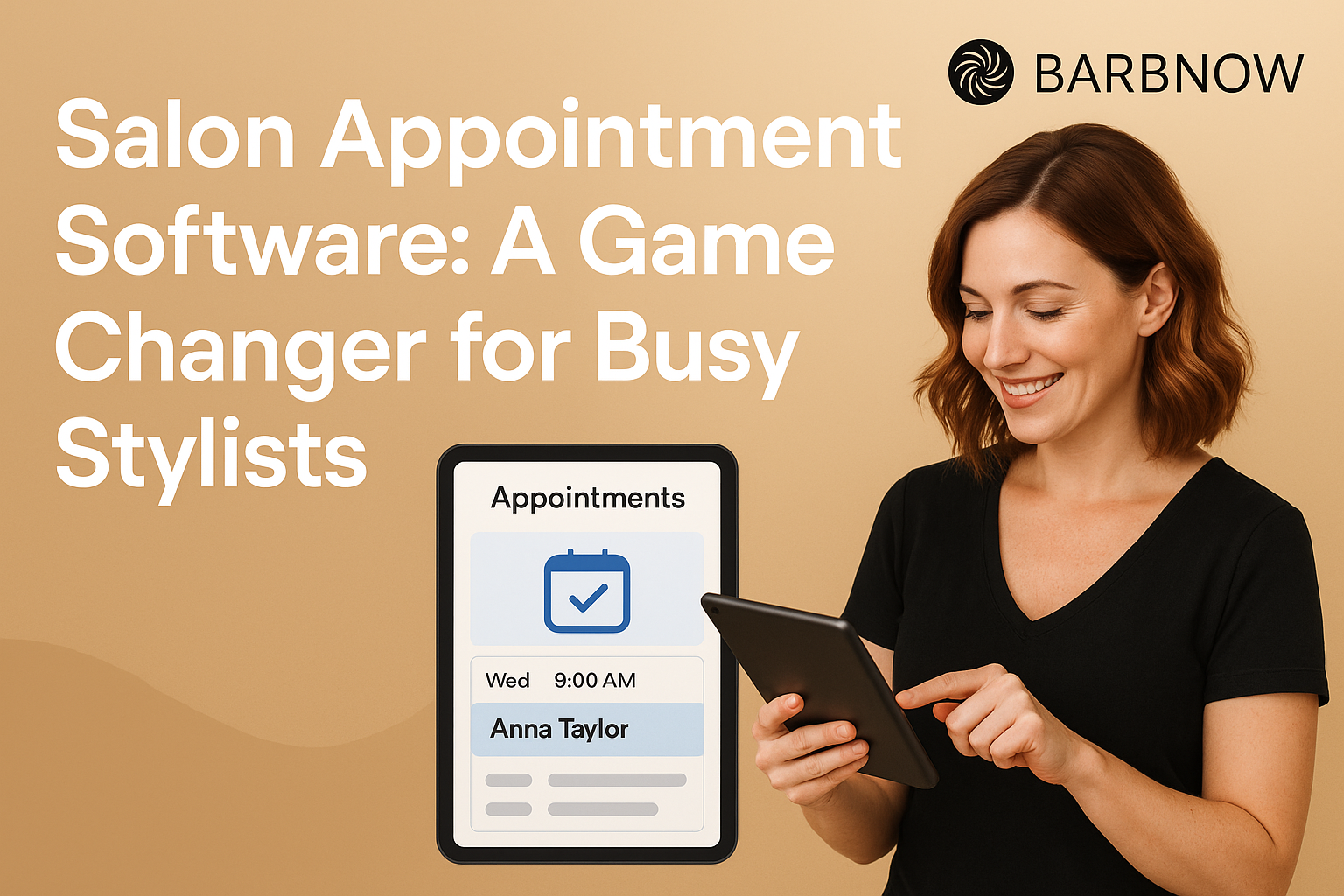Why Every Modern School Needs a Holistic Progress Card System

Strong 8k brings an ultra-HD IPTV experience to your living room and your pocket.
In an age where education is rapidly evolving, relying solely on marks and grades to define a student’s abilities is no longer sufficient. Traditional report cards, with their narrow focus on academic performance, fail to capture the full spectrum of a child’s development. Enter the Holistic Progress Card System — a modern, multi-dimensional approach to student assessment that aligns with the needs of 21st-century learners.
For school owners and education leaders, adopting a holistic progress card system is more than a trend—it’s a strategic move to ensure meaningful learning outcomes, enhanced parent trust, and long-term school growth. This article explores why every forward-thinking institution must make the switch now.
What Is a Holistic Progress Card?
A Holistic Progress Card (HPC) is a comprehensive student assessment tool that evaluates a child's overall development—academics, co-curricular activities, life skills, emotional intelligence, and values. Unlike traditional report cards that present a linear view of student success, HPCs provide a 360-degree profile that reflects strengths, growth areas, and progress over time.
Backed by educational frameworks like India’s National Education Policy (NEP) 2020, the holistic model emphasizes experiential learning, conceptual understanding, and personality development. It celebrates not just the top performers in academics but also encourages progress in creativity, collaboration, critical thinking, and character.
Why Traditional Report Cards Fall Short
The current system, which emphasizes grades in a few academic subjects, paints an incomplete picture of a learner’s true potential. Some key limitations include:
One-dimensional Evaluation: Skills like communication, empathy, leadership, or artistic talent are overlooked.
Low Engagement: Students are often demotivated if they don’t fit the mold of academic excellence.
Poor Emotional Tracking: There’s no way to identify issues like stress, anxiety, or lack of confidence.
Parental Disconnect: Many parents seek more than just marks—they want to understand how their child is growing.
This results in a mismatch between what schools measure and what students truly need to succeed in life.
Key Benefits of Holistic Progress Cards for Schools
1. Enhanced School Reputation
Implementing holistic assessments positions your school as forward-thinking and student-centric. This appeals to modern parents who value emotional intelligence and life readiness as much as academic success.
2. Improved Parent Engagement
When parents receive detailed insights about their child’s strengths, personality, and behavior patterns, trust in the school system deepens. It also opens up more meaningful parent-teacher conversations.
3. Whole-Child Development
Students feel recognized for more than their test scores. Recognizing co-curricular achievements, personal traits, and social skills boosts self-esteem and fosters well-rounded individuals.
4. Personalized Learning and Support
With detailed feedback across domains, teachers can design tailored interventions and enrichment plans. Students with learning challenges or hidden talents get timely support.
5. Data-Driven Improvement
Aggregated HPC data helps school leaders identify curriculum gaps, training needs, and student trends, which can inform broader strategic decisions.
Core Components of a Holistic Progress Card System
A well-designed HPC includes the following elements:
Academic Achievement: Subject-wise understanding, project-based learning, problem-solving ability.
Life Skills: Teamwork, adaptability, leadership, time management.
Personality Traits: Confidence, curiosity, empathy, discipline.
Health and Wellness: Physical fitness, nutrition habits, emotional well-being.
Co-curricular Involvement: Sports, arts, music, drama, debate, etc.
Behavioral Observations: Punctuality, peer interaction, class participation.
Teacher & Peer Feedback: A well-rounded narrative built on qualitative insights.
This kind of structured yet flexible framework ensures that no area of student development is left unseen or unvalued.
How Technology Simplifies Holistic Reporting
While holistic assessments may seem time-consuming, the right digital tools make the process streamlined and scalable. School ERP systems with integrated assessment modules offer:
Customizable Report Templates: Align with your pedagogy and branding.
Collaborative Input: Teachers, co-curricular heads, and counselors can input data in real-time.
Visual Dashboards: Use graphs and charts to highlight progress across dimensions.
Automated Reports: Save hours of administrative effort with one-click report generation.
Parental Access: Secure portals allow parents to view reports online, encouraging transparency.
Such tools make it easy to adopt holistic progress cards without adding excessive burden on teachers or admin staff.
Challenges in Adoption (and How to Overcome Them)
Challenge 1: Teachers may resist change due to unfamiliarity.
Solution: Offer structured training and involve teachers in the design process to ensure buy-in.
Challenge 2: Time constraints in capturing non-academic data.
Solution: Use simple digital forms and monthly check-ins to gather behavioral and emotional observations gradually.
Challenge 3: Parents may question new metrics.
Solution: Educate them through workshops, report walkthroughs, and explain how HPCs benefit their child’s future.
Challenge 4: Lack of standardization.
Solution: Start with a pilot program, use a NEP-aligned rubric, and evolve based on feedback.
Transitioning to a holistic system may require effort initially, but the long-term payoff is worth it.
Why School Owners Should Lead the Shift
As a school owner or principal, you have a unique opportunity to shape the educational culture of your institution. By embracing holistic progress cards:
You align with national education goals like NEP 2020 or international best practices.
You differentiate your brand in a competitive education landscape.
You future-proof your school by preparing students for life beyond textbooks.
Most importantly, you create an environment where every child is seen, heard, and nurtured.
Conclusion
The future of education is holistic, inclusive, and growth-oriented. A Holistic Progress Card is not just a document—it’s a mirror reflecting the many dimensions of a learner’s journey. It empowers educators, reassures parents, and most importantly, validates the unique potential of every student.
For school owners aiming to offer real value, build trust, and enhance outcomes, adopting a holistic progress card system is no longer optional—it’s essential.
Note: IndiBlogHub features both user-submitted and editorial content. We do not verify third-party contributions. Read our Disclaimer and Privacy Policyfor details.







